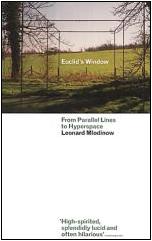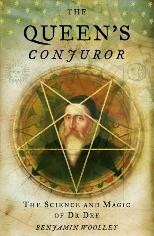Reviews and recommendations
'Strength in numbers'Many popular books about mathematics combine elements of exposition and personal commentary, but few combine these disparate elements to the same extent as this book.
'Chaos Theory - video'This video, aimed at students aged 16+, opens with Professor Chris Budd holding the plastic yellow duck he is entering in the Annual Bath Plastic Duck Race. Competition is stiff - there are over 3,000 contestants - but how can we predict who will win? Very few competitors have form, and it's hard to tell much about their training regimens... so is the outcome totally unpredictable?
'1089 and all that'Since the phenomenal success of "The little book of calm", publishers have been falling over themselves to produce "little books" of everything else, presumably in the hope that the essential ingredient was the littleness, rather than the calmness. Although, at 5 inches by 7¼, "1089 and all that" makes a rather big little book, and its content couldn't be further from the banalities of "The little book of calm", there is something of a "little book of mathematics" about it, with its short chapters and personal narrative.
'Mathematics: a Very Short Introduction'One of Oxford University Press's series of "Short Introductions", this book is a rigorous and challenging description, by one of the greatest pure mathematicians alive (Timothy Gowers is Rouse Ball Professor of Mathematics at the University of Cambridge, and a Fields Medal recipient), of what mathematics is. Perhaps too challenging, in fact - on page 23 we are introduced to an axiomatisation of number systems, and things only get tougher. Clearly, as one of a highly intellectual series, the book is intended to stretch its readers' abilities to the utmost.
'How to dunk a doughnut'Paul Erdös is reported to have said "A mathematician is a machine for turning coffee into theorems". We may never know if he appreciated the mathematics behind the perfect dunk of a biscuit into said coffee, but we can all begin to understand the ubiquity of maths in our lives, thanks to Len Fisher's delightful book. The subtitle is "The science of everyday life", though pretty much all the content is maths with the equations (mostly) taken out. Perhaps Professor Fisher was advised that sales would suffer if they weren't, but anyone interested in the applications of mathematics to the real world will find plenty to amuse and educate.
'Reckoning with risk'Gerd Gigerenzer is not a mathematician or statistician per se, but primarily a psychologist, working across disciplines to understand how human beings make decisions in the face of uncertainty. What he offers here is nothing less than a prescription for how to think, how to choose, and how to live, when the information on which we base our decisions is necessarily incomplete and flawed. For example - how worried should you be if you have a positive mammogram as part of a screening programme for breast cancer, or a positive HIV test despite the fact that you are in a low-risk group?
'The Golden Ratio'Euclid defined what later became known as the Golden Ratio thus:
A straight line is said to have been cut in extreme and mean ratio when, as the whole line is to the greater segment, so is the greater to the lesser.
'Euclid's Window'Anyone who thought geometry was boring or dry should prepare to be amazed. Despite its worthy cover this book is exactly what its title says - a story - and the plot of this story involves life, death and revolutions of understanding and belief, and stars the some of the most famous names in history.
'Elements of Grace' and 'Copernican Notes'During September and October, the Isaac Newton Institute for Mathematical Sciences showed a small exhibition of two suites of photo-etchings with mathematical components by the Canadian artist Catherine M Stewart, who studied both maths and physics in the course of her undergraduate degree at the University of Toronto. Elements of Grace is a collection of 12 photo-etchings which combine diagrams from Newton's Principia Mathematica (1729) with photodetails of the human body.
'Calculus'Despite its title, Carl Djerassi's latest play, Calculus, is more like a lesson in history or even psychology than one in mathematics. This is because Djerassi's intention was to explore the moral calculus that was involved in the discovery of the mathematical technique, rather than the technique itself.
'The Queen's Conjuror'Although some people might find maths deadly boring, very few of us would think it could ever be deadly dangerous. But deadly it was in 16th century England, and one of those who followed the dangerous and mystical path of a mathematician was John Dee, the subject of this book.
'Archimedes'Sherman Stein's motivation for writing this book grew out of a course on the history of calculus for undergraduates he taught for several years. Before that, like most of us, he didn't know where Archimedes' reputation as one of the greatest mathematicians of all time had come from - and now he wants us to know too.










